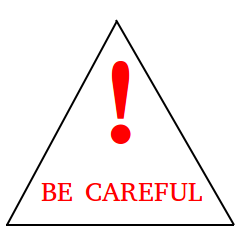Definition of rational number and examples.
A rational number is a number that can be written in the form a/b, where a and b are integers and b is not equal to 0 .
For example, 0.20 can be written as 1/5 since 1/5 = 0.20. Furthermore, 1 and 5 are integers. Therefore, 0.20 is a rational number.
0.20 is the decimal form and 1/5 is the fraction form.
0.33333333333 is also a rational number since it can be written as 1/3 and 1 and 3 are integers.
0.33333333333 is the decimal form and 1/3 is the fraction form.
A rational number in decimal form is either terminating, such as 0.20, or repeating, such as 0.33333333333.
All integers are rational numbers because you can write any integer x as x/1.

Although 0 and -8 are integers, -8/0 is not a rational number since division by 0 has no answer.
3.5/4.1 is not a rational number since 3.5 and 4.1 are not integers.